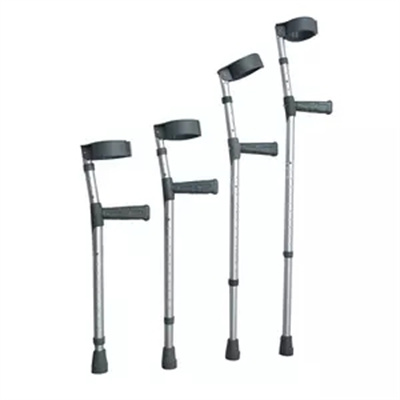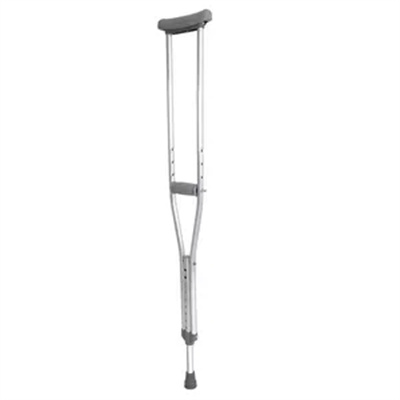Crutches can be a valuable tool on your journey to independence, whether you’re recovering from an injury, surgery, or managing a mobility challenge. Here are some tips for crutching your way to greater independence:
- Learn Proper Technique: Start by learning the correct technique for using crutches. A physical therapist can provide guidance on how to walk, go up and down stairs, and navigate various environments safely.
- Build Strength and Stamina: Incorporate exercises to build upper body strength and stamina. This will help you better handle the physical demands of using crutches.
- Practice and Patience: It may take some time to become proficient with crutches. Practice regularly, both indoors and outdoors, to improve your confidence and skills.
- Set Goals: Establish specific goals for your independence. Whether it’s being able to walk a certain distance, perform daily activities, or return to work or school, having clear objectives will keep you motivated.
- Home Modifications: Make necessary modifications to your home to enhance accessibility and safety. This may include installing grab bars, ramps, and wider doorways.
- Adaptive Devices: Explore adaptive devices that can make daily tasks easier, such as a crutch bag or a knee scooter for longer distances.
- Learn to Ask for Help: Independence doesn’t mean you have to do everything on your own. It’s okay to ask for assistance when needed, whether it’s from family, friends, or professionals.
- Access Resources: Research available resources and support in your community. Local disability organizations, support groups, and government programs may offer assistance or guidance.
- Adaptive Sports and Recreation: Look for adaptive sports and recreational programs in your area. These activities can boost your confidence and provide opportunities for physical activity and social interaction.
- Accessible Transportation: Explore accessible transportation options in your community. This may include public transit with wheelchair ramps or paratransit services.
- Mental and Emotional Well-Being: Prioritize your mental and emotional well-being. Coping with mobility challenges can be emotionally taxing, so consider counseling or therapy if needed.
- Stay Informed: Be aware of your rights and protections under the Americans with Disabilities Act (ADA) and other relevant laws. Knowledge empowers you to advocate for your needs.
- Plan Ahead: Plan your daily activities and outings in advance to minimize unexpected challenges. Consider factors like terrain, weather, and accessibility.
- Celebrate Achievements: Celebrate your accomplishments, no matter how small they may seem. Each step forward is a victory on your journey to independence.
- Maintain a Positive Attitude: A positive attitude is a powerful asset. Focus on your abilities rather than limitations, and surround yourself with supportive individuals who uplift and encourage you.
Independence is a gradual process, and it may require ongoing adaptation and determination. Embrace the journey, and remember that your path to independence is unique to you. With the right mindset, support, and effort, you can crutch your way to greater independence and lead a fulfilling life.




















